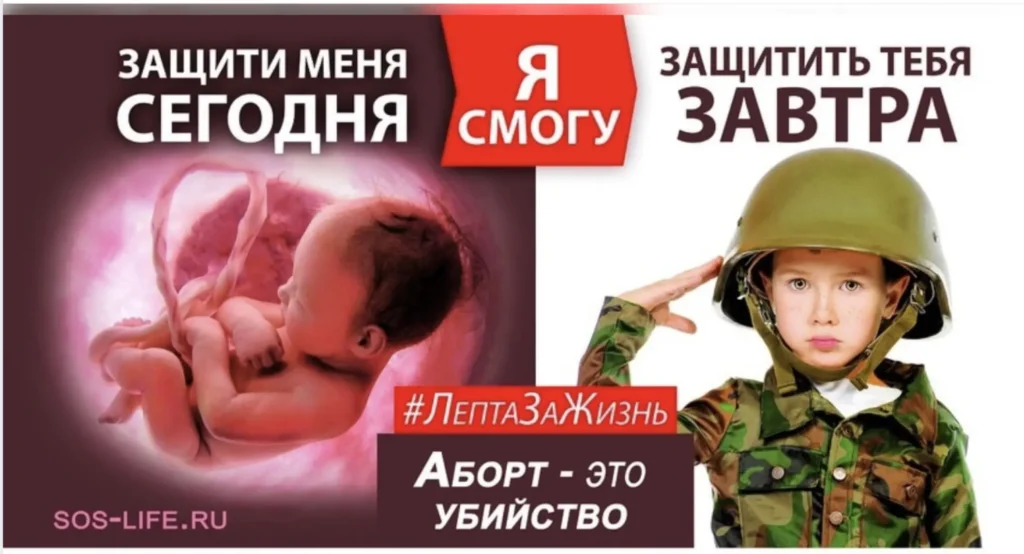Russia – In the Arkhangelsk region, a collective of churches is actively campaigning for the introduction of stringent anti-abortion legislation. The proposed law, prominently displayed on the Vkontakte page of a Severodvinsk church, seeks to prohibit both the promotion and facilitation of abortion services throughout the region. This initiative has garnered support from churches in Novodvinsk and Arkhangelsk, which are currently gathering signatures to urge the regional assembly to enact the proposed law.
A striking image accompanies the church’s social media campaign: an unborn baby juxtaposed with a young child in military attire, captioned, “Protect me today, I can protect you tomorrow. Abortion is murder.” This visual underscores the church’s stance on the sanctity of life and the perceived future role of children in society.
This movement aligns with President Vladimir Putin’s declaration of 2024 as the “Year of the Family,” aiming to bolster traditional family values and address Russia’s demographic decline. The nation has been grappling with a significant decrease in birth rates, reminiscent of the late 1990s, exacerbated by recent geopolitical events leading to the emigration of numerous young citizens.
In Cherepovets, Vologda region, a local newspaper, Rech, reported on Natalia, a mother of multiple children, who was denied an abortion at a city clinic. The clinic staff cited directives to encourage all women under 50 to carry pregnancies to term, reflecting a broader national effort to increase birth rates.

The push for higher birth rates coincides with a demographic crisis in Russia, with birth rates declining to levels reminiscent of the late 1990s. Additionally, the country has witnessed a significant exodus of young people since 2022, following geopolitical tensions and conflicts.
The human cost of recent conflicts remains largely undisclosed; however, independent news outlet Mediazona estimates that over 165,000 individuals have been killed in the past three years, with hundreds of thousands more wounded. This loss has profound implications for Russia’s demographic composition and future.
Concurrently, there is a noticeable trend toward the militarization of youth. Young children participate in military-themed activities in educational settings, while older students receive training in handling firearms, grenade throwing, and other military techniques. Military theory is increasingly becoming a mandatory component of the Russian school curriculum.
Arkhangelsk is not alone in its legislative endeavors; regions such as Tver, Kursk, and Mordovia have already enacted laws banning the promotion and coercion of abortion. Numerous other regions are deliberating similar measures. Notably, in 2011, Arkhangelsk was the first Russian region to prohibit the dissemination of gay propaganda to minors and to ban pride parades, setting a precedent that later influenced national legislation.
These developments reflect a concerted effort by both religious institutions and governmental bodies to reinforce traditional values and address the nation’s demographic challenges. The intertwining of anti-abortion campaigns with nationalistic themes highlights the multifaceted approach Russia is adopting in its quest to revitalize its population and preserve its cultural identity.